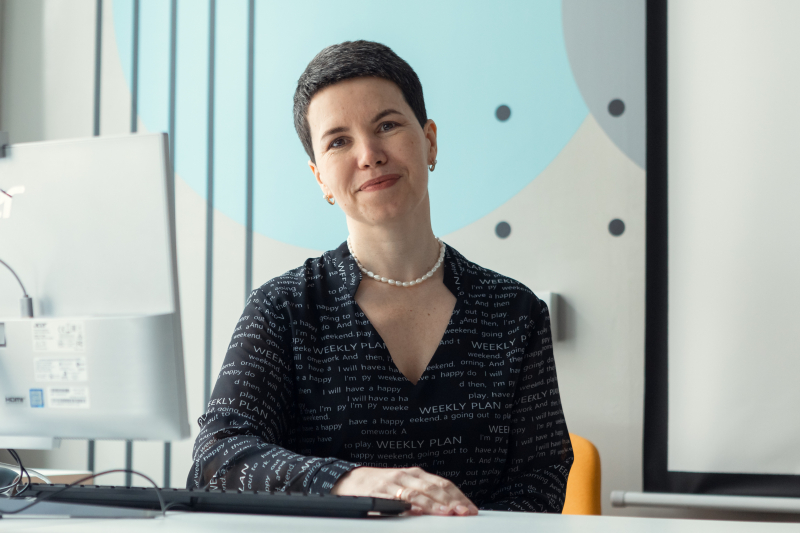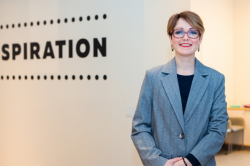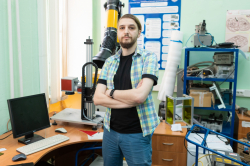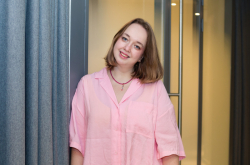You’ve once said on your social media that English is your job, hobby, and lifestyle. How did it all start? Why did you decide to devote your life to English?
English is so deeply embedded into my life that it’s actually become my life, and I can’t imagine it being any different. I’ve been passionate about English since I was little. It’s something that makes me happy better than anything else. I enjoy reading books in English, I love the way it sounds, and I love speaking it myself. So, I’ve never even thought about becoming, say, an engineer, though I liked physics and mathematics, too. I followed my heart and got into the Herzen State Pedagogical University because I believe that doing something you love is the only way to go.
How did you get into ITMO?
I worked at three different schools and I had an incredible experience every time because there was something unique about each of them. I taught students of primary and secondary schools for three years, and then I got accepted into St. Petersburg International School, which is part of the Herzen State Pedagogical University. There, I learned to treat my students more carefully. After that, I got into a gymnasium in Peterhof where I realized that it was high time for me to advance professionally. Nevertheless, I’ll always treasure the experience I gained and also the people who I got to work with since the most important thing in life is actually the people around you.
You left school for university two years ago. Why?
I wanted to try something new and by the way, this is the best way to avoid burnout. Once, I met my colleague at an IELTS preparation course and from her stories I got the impression that ITMO was a great place. I got interested and decided to give it a try.
I knew that going from a school to a university teacher, I’ll inevitably have to go through an adaptation period. Yet I was lucky to do it quickly. All I needed was a bit of time to fall in love with university life.
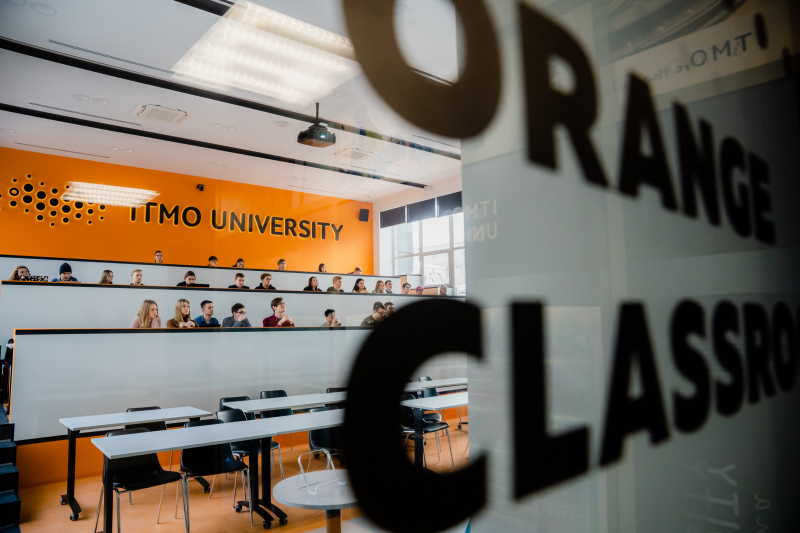
Credit: ITMO.NEWS
You’re a lecturer of the English for Specific Purposes course and a teacher development coordinator at ITMO’s Foreign Language Training Center. What do you do exactly?
I remember when I was taking my DELTA exam, there was a task to plan out what I was going to do next after I got my certificate. I had quite a few ideas and one of them was to become a teacher trainer. That’s why, even before joining ITMO, I took some courses and began preparing other teachers for the exam at one of the language schools in the city.
In September 2021, I received an offer from Anastasia Nikulenko, the head of ITMO’s Foreign Language Training Center, to become a professional development coordinator. I saw this as a task that assumed greater responsibility but at the same time an amazing chance to share my knowledge with others and learn something new myself.
As a coordinator, I ask other teachers what they need or what kinds of challenges they face in their careers, as well as what they believe would be useful for their colleagues. I also arrange events that are meant to start a dialogue about different topics and pressing issues. These kinds of events have a special atmosphere that motivates us to go beyond our competencies. We tend to believe that if we know something then others do, too, but this is not always the case. That’s why it’s so crucial to share your experience with others and put what you’ve learned from others into practice.
What are your classes like?
I always ask myself “What do I want to achieve with this?” when I am preparing for my classes. For instance, why am I giving my students this or that task? And usually once I know myself why I do it and what I want to achieve, everything works out. I have to understand the end goal, and I want my students to get something valuable out of each assignment. Whichever books or materials we use, I know that the greatest resources are students, teachers, and their communication. It’s also important to be able to engage students. And, of course, teachers should be flexible because well, there’s the lesson plan, and then there’s the real lesson.
I have practical classes with students from the Faculty of Infocommunication Technologies and the Faculty of Software Engineering and Computer Systems. They’re actively engaged in the learning process: they enjoy listening to podcasts, watching videos, and exchanging ideas. I believe there is nothing better than having my classes help students expand their horizons, speak more confidently, present their projects, or even come up with new ideas.
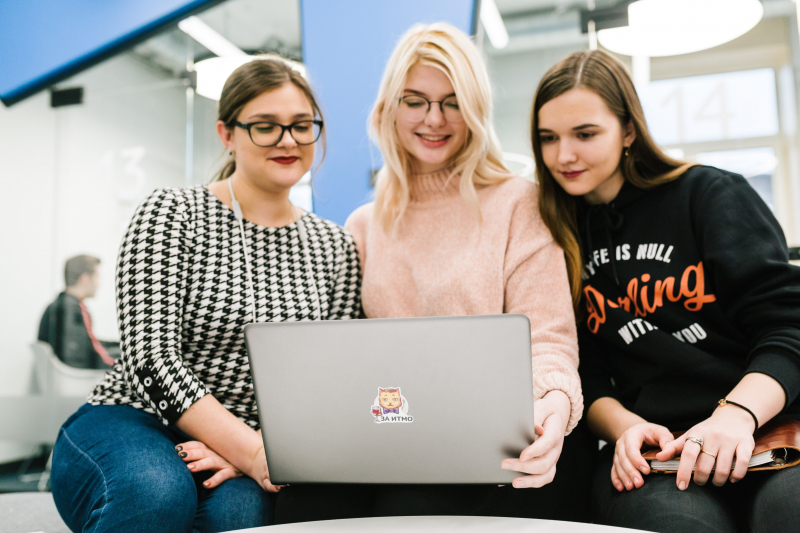
Credit: ITMO.NEWS
Your professional interests include efficient ways to learn English. Could you share some tips on how to learn a foreign language?
The most important thing, as I see it, is to stay on track and treat learning as a journey. If you think that learning English is hard or boring, you will have to always force yourself to learn and your progress will be slower. But if it’s an exciting journey for you, everything will be different. You can play with words, come up with your own examples, watch something or read books, make mistakes and still go further. When studying a new language, you should be fully focused. For instance, once you read a book, it’s best to write down some handy phrases you would like to use later or make your own sentences with those phrases.
What does your victory at the ITMO.EduStars contest mean to you?
That’s one of the most significant awards I’ve ever received. This win means that what I do has meaning and that I’m on the right path.
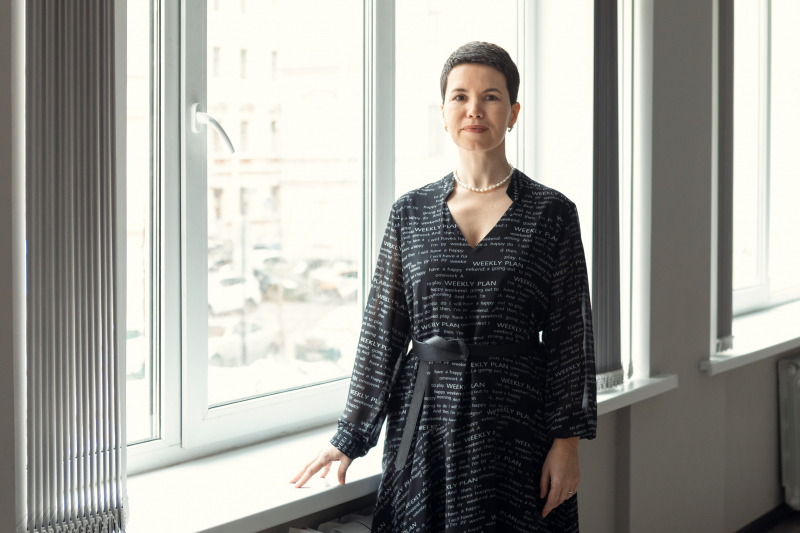
Yulia Artemenkova. Photo by Dmitry Grigoryev / ITMO.NEWS
What do you do in your spare time?
I enjoy watching movies and reading books, non-fiction mainly. My latest read and now my handbook is Atomic Habits: An Easy & Proven Way to Build Good Habits & Break Bad Ones by James Clear. When I first came across it, I thought this book is about habits that make a significant part of our lives but it’s actually more about the baby steps that bring us to the desired results, no matter if you’re eager to exercise more, cut down on sugar, or master a new language.
Teaching is also about habits. If you change your teaching style, you’ll get a completely different result. For example, if I notice that I pay too little attention to pronunciation, I start introducing such tasks into my classes, and gradually it becomes my habit.
I’m also a bit of a magician – I’ve been making my own beauty products these past two years. I study recipes, create moisturizers, and strive to be better not only at English but also at everything else I do, as well.
